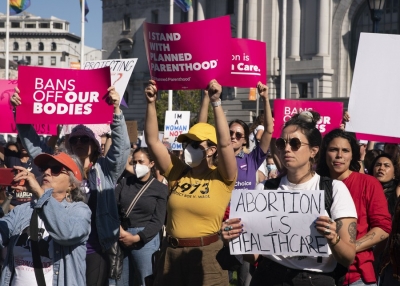America
Georgia Court Blocks Six-Week Abortion Ban

October 1 :
A Judge in the US state of Georgia reversed a law that had prohibited abortions for women who were six weeks or more along in their pregnancies. Judge Robert McBurney of Georgia's Fulton County Superior Court upheld the constitutionality of the state's so-called "heartbeat" abortion statute.
Abortions were outlawed in the state once the heartbeat of an embryo could be discovered, which typically occurs at about six weeks into the pregnancy, well before the majority of women become aware that they are pregnant.After the US Supreme Court invalidated the countrywide right to the procedure in 2022, the Republican-dominated state legislature enacted it in 2019 and it went into force the next year.
Abortion rights have emerged as a central topic in the upcoming presidential election between Democratic candidate Kamala Harris and Republican Donald Trump, following the Supreme Court's decision that restricted the procedure in over 20 states across the United States.
Following McBurney's decision, abortions in Georgia are legal up until viability, or around 22 weeks into the pregnancy.
"Liberty in Georgia includes... the power of a woman to control her own body, to decide what happens to it and in it, and to reject state interference with her healthcare choices," according to the court.
"That power is not, however, unlimited," said he. "When a fetus growing inside a woman reaches viability, when society can assume care and responsibility for that separate life, then -- and only then -- may society intervene." The Center for Reproductive Rights, a nonprofit organization, expressed its gratitude for McBurney's decision, but pointed out that Republican Georgia Attorney General Chris Carr might petition the state supreme court to halt the decision and restore the stringent abortion restriction.
"If he does so, abortion providers and advocates will fight to preserve this ruling and to ensure every Georgian can make the personal medical decisions that are best for their health, their futures and their families," the Center for Reproductive Rights stated.
Although the judge's decision was a "significant step in the right direction," Monica Simpson, executive director of the SisterSong Women of Color Reproductive Justice Collective, the group that brought the case, lamented that it was too late for two Georgia women who lost their lives due to a lack of access to timely abortions.





































